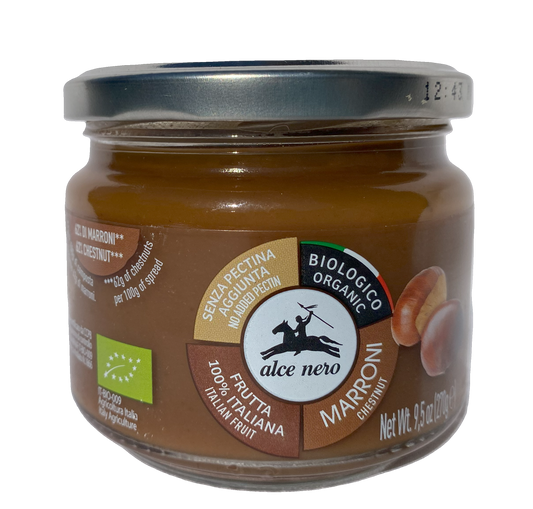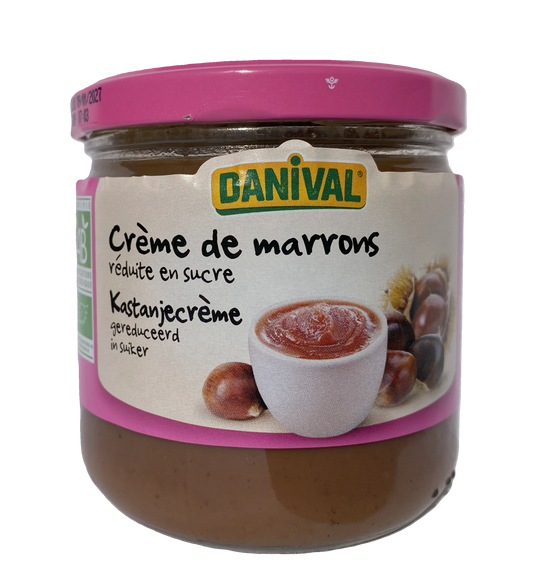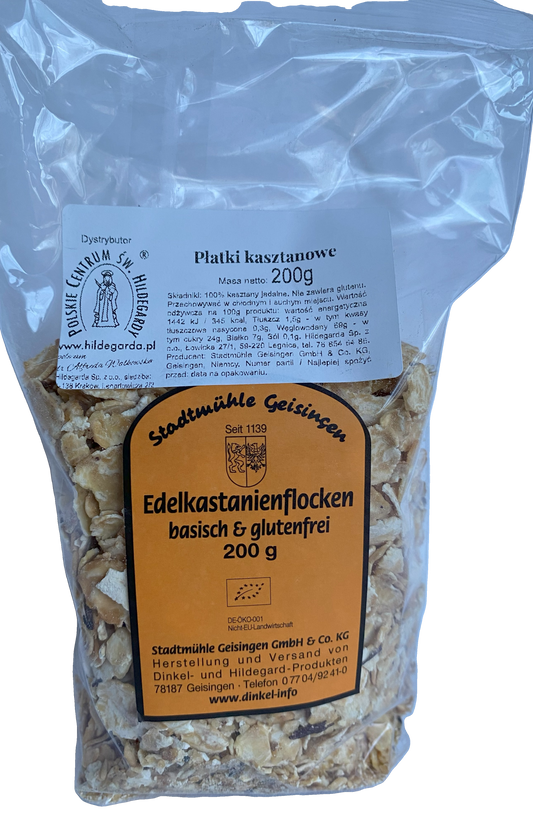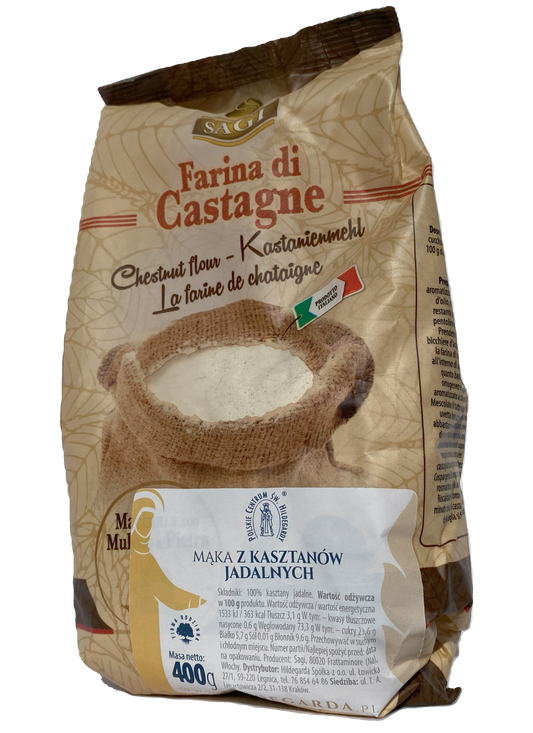Chestnut
Alongside spelt and fennel, chestnut is one of the food items recommended by St. Hildegard as a nutritional and medicinal remedy that is 100 percent assimilable by the human body. She herself speaks about chestnuts in the following way: "The chestnut tree is very hot but has great power mixed with that heat. It symbolized discretion. The virtue in it, and its fruit, is useful against all infirmity in a human.” The conclusion from this is that chestnuts are a remedy for all ailments. Whether consumed raw or prepared, they are nutritious and medicinal.
Chestnuts contain tannins, bioflavonoids, high-quality carbohydrates, and GABA (gamma-aminobutyric acid), an amino acid necessary for nerve conduction and the construction of nerve cells. The high content of nutrients and the stored solar energy make the human body harmoniously nourished, thereby rebuilding strength and immunity. Therefore, chestnuts are fundamental in supporting the treatment of people fighting destructive diseases such as cancer, AIDS, or Lyme disease.
The remedy that immediately comes to mind for Hildegard followers in the case of liver ailments is chestnut: “One who ails in the liver should pound those same kernels, place them in honey, and often eat them with the honey, and his liver will be cured. One who suffers a pain in his spleen should dry those kernels gently on a fire and then frequently eat them, somewhat warm. His spleen will be warmed and then toward full health.” See Recipe tab for detail on preparing this remedy at home!
Chestnuts are also recommended for leukemia and Alzheimer's disease. Those who consume chestnuts naturally prevent these and many other diseases. To strengthen the nervous system and improve memory, chestnuts should be eaten roasted or cooked. For quick, strong heart reinforcement, take a teaspoon of raw chestnut flour.
The fragrance of chestnut wood in the sauna or when burned strengthens brain function and improves concentration.
Health Benefits
1. Digestive Health
- Improves Digestion: The high fiber content promotes regular bowel movements and prevents constipation.
- Prebiotic Properties: Fiber acts as a prebiotic, fostering a healthy gut microbiome.
2. Heart Health
- Low in Fats: Unlike many other nuts, chestnuts are low in fat, which is beneficial for heart health.
- Rich in Potassium: Potassium helps regulate blood pressure and supports cardiovascular health.
- Antioxidants: Chestnuts contain antioxidants that help reduce inflammation and prevent oxidative stress, contributing to heart health.
3. Weight Management
- Low in Calories: Compared to other nuts, chestnuts are lower in calories, making them a good option for weight management.
- Satiety: The combination of fiber and complex carbohydrates helps you feel full longer, reducing overall calorie intake.
4. Blood Sugar Control
- Low Glycemic Index: Chestnuts have a low glycemic index, which means they cause a slower, more gradual rise in blood sugar levels. This is beneficial for managing diabetes and preventing blood sugar spikes.
5. Bone Health
- Rich in Magnesium: Magnesium is essential for bone health, playing a crucial role in calcium absorption and bone mineralization.
- Contains Copper: Copper is important for maintaining strong bones and connective tissues.
6. Immune Support
- High in Vitamin C: Vitamin C boosts the immune system, helps in the repair of tissues, and acts as an antioxidant.
- Supports Collagen Production: Vitamin C also aids in collagen synthesis, which is vital for skin, blood vessels, and bones.
7. Energy Production
- B Vitamins: Chestnuts are a good source of B vitamins, particularly B6 and folate, which are crucial for energy production and red blood cell formation.
8. Cognitive Function
- Rich in Folate: Folate is essential for brain health and cognitive function. It is particularly important during pregnancy for fetal brain development.
- Antioxidants: The antioxidants in chestnuts may help protect brain cells from damage caused by free radicals.
9. Skin Health
- Antioxidant Protection: Vitamin C and other antioxidants in chestnuts help protect the skin from oxidative damage, promoting healthy, youthful skin.
- Collagen Support: The vitamin C content supports collagen production, enhancing skin elasticity and strength.
-
Organic Chestnut Spread 270g (9.5oz)
Regular price $12.90 USDRegular priceUnit price / per -
Organic Chestnut Spread 380g (13.4oz)
Regular price $16.99 USDRegular priceUnit price / per$19.40 USDSale price $16.99 USDSale -
Chestnut Flakes 200 g. (7.05 oz.)
Regular price $13.90 USDRegular priceUnit price / per -
Chestnut flour - 400g (0.88 lbs)
Regular price $9.50 USDRegular priceUnit price / per




